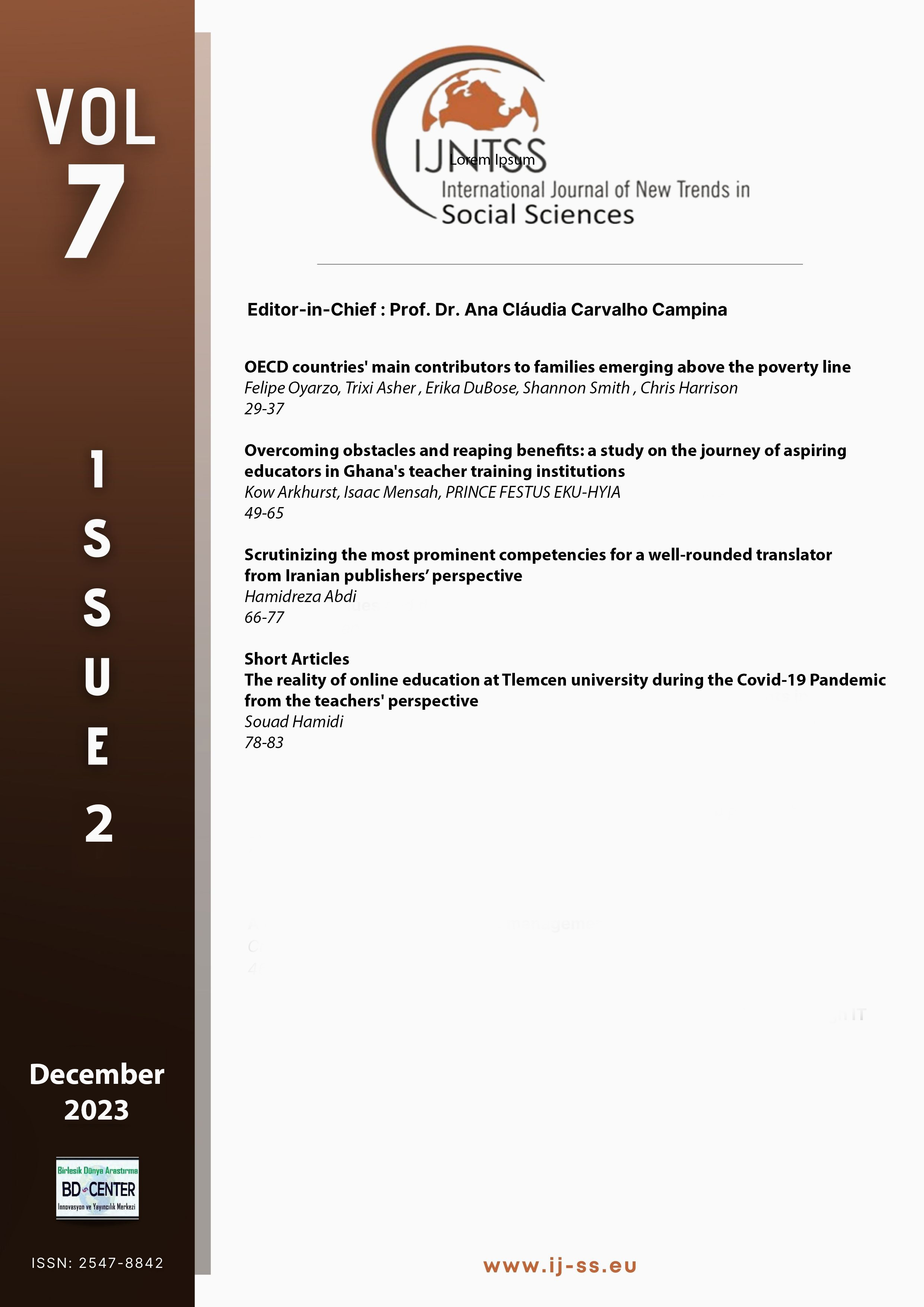OECD countries' main contributors to families emerging above the poverty line
Main Article Content
Abstract
The reduction of poverty rates remains a challenging battle for most OECD governments, numerous international organizations, philanthropic associations, and a subject of study for many research centers. In this analysis, 200 empirical governmental documents, international reports, and peer-reviewed scientific publications regarding poverty reduction were meta-analyzed to identify the strongest factors in reducing poverty among OECD countries. A quantitative exploration of the literature using a statistical correlational research design showed that positive political leadership, effective economic and policy-making, low crime rates, low corruption rates, employment, higher earnings, familial support, greater access to higher education, age, physical and cognitive disability, physical health, mental health, positive cultural factors (mentality, values, etc.), access to clean water and food, housing, location, relocation, government support, communal support, scientific development (technology and innovation), and availability of production resources were found to be the most significant areas associated with the reduction of poverty among OECD countries in 2023. An analysis of the findings and suggestions for policymaking and research are also offered.
Keywords: Economy; economic mobility; OECD; poverty, poverty reduction; social mobility
Downloads
Article Details

This work is licensed under a Creative Commons Attribution-NonCommercial-NoDerivatives 4.0 International License.
Authors who publish with this journal agree to the following terms:
- Authors retain copyright and grant the journal right of first publication with the work simultaneously licensed under a Creative Commons Attribution License that allows others to share the work with an acknowledgement of the work's authorship and initial publication in this journal.
- Authors are able to enter into separate, additional contractual arrangements for the non-exclusive distribution of the journal's published version of the work (e.g., post it to an institutional repository or publish it in a book), with an acknowledgement of its initial publication in this journal.
- Authors are permitted and encouraged to post their work online (e.g., in institutional repositories or on their website) prior to and during the submission process, as it can lead to productive exchanges, as well as earlier and greater citation of published work (See The Effect of Open Access).
